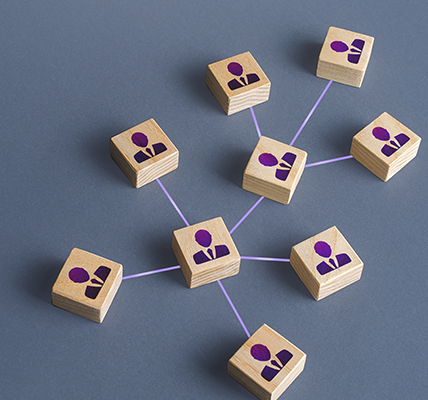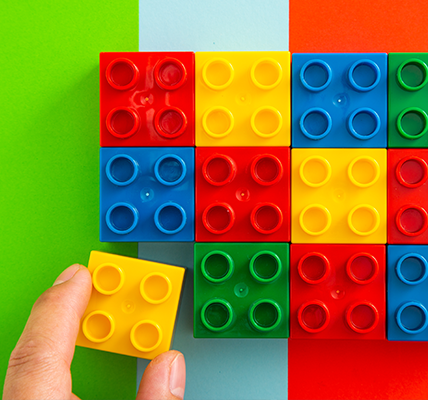Inclusive Research
& Design
Despite the heightened awareness around accessibility and inclusive design, products continue to emerge that have limited usability and usefulness for individuals with a broad range of disabilities. At Charter Dynamics we do not believe that this is an intentional act; in many cases enterprises simply don’t have access to the expertise necessary to ensure that their next consumer product is truly usable by people with increasingly varied disabilities.
As accessibility consultants, we help organizations by identifying issues of inaccessibility early in the product development lifecycle by leveraging our expertise in inclusive research and design. Inclusive design is focused on gaining an awareness of human diversity (e.g., age, gender, disability, etc.), identifying usability problems that might be experienced by distinct groups, and attempting to design user-centered technologies that reflect users’ often varied needs, thus creating inclusive research and design. We have leveraged this expertise to support the design of a wide range of consumer technologies from accessible self-driving vehicle Human-Machine Interfaces to accessible social systems.
We have expertise in...
Survey design and distribution
Surveys and questionnaires are powerful tools that can be used to collect data about consumer preferences, customer satisfaction, or public opinion. When used correctly, they can provide valuable insights that can help businesses make better decisions. However, designing an effective survey is not always easy.
Questions must be carefully crafted to elicit the desired information, and the survey should be pilot-tested to ensure that it is understandable. At Charter Dynamics, we are experts at inclusive research and design and can assist your company in leveraging surveys as a tool for gaining additional insights regarding your target consumers.
Focus Group Facilitation
In today's business landscape, it's more important than ever to track consumer sentiment. After all, this is the best way to ensure that your products or services are meeting the needs of your target market. One popular method for tracking consumer sentiment is focus groups. Focus groups involve bringing together a small group of potential or current customers and asking them questions about their needs and expectations.
This can provide valuable insights that can be used to fine-tune your offerings. In addition, focus groups can help you to identify potential problems early on before they have a chance to do significant damage to your brand and can help you create the perfect product design for inclusivity. As such, investing in focus groups can be a wise move for any business that wants to stay ahead of the competition. At Charter Dynamics, we have extensive experience in focus group design, accessible design, and facilitation and have extensively employed this qualitative research method to understand consumer sentiment regarding a range of existing and emerging technologies.
User Needs Analysis
A user needs analysis is a process of determining the needs of the user of a particular system or product. This process is important in order to ensure that the system or product meets the user's needs.
There are a number of steps involved in conducting a user needs analysis, including identifying the target audience, identifying the user's needs, and analyzing the data. Once the user's needs have been determined, it is important to create an inclusive design of the system or product in such a way that it meets those needs. User needs analysis is an essential part of any successful design process.
Persona Development
When designing products or interfaces, it is essential to consider the needs of the end-user and conduct inclusive research. One way to do this is to create personas; fictional characters that represent a specific type of user. Personas are based on real data, such as demographics and user behavior, but they also include some personality traits and background information. This allows designers to think about how a real person would interact with their product.
Personas can help to prevent design mistakes, such as creating an interface that is too complex or using jargon that users may not understand. When used properly, personas can be a powerful tool for making sure that products are designed with the end user in mind.
Participatory Design
Participatory design is a process that involves all stakeholders in the design of a product, system, or service. The aim is to create a result that is more user-centered and effective than if the designers had worked alone.
Participatory inclusive research and design have been shown to lead to better outcomes in terms of user satisfaction, usability, and functionality. In addition, participatory design can help to build team unity and commitment, as well as improving communication and collaboration skills. The benefits of participatory design make it an essential tool for any designer or development team. When used correctly, participatory design can help to create products, systems, and services that users will love.
Requirements Elicitation & Specification
A requirements specification is a document that outlines the specific requirements for a product, system, or service. The purpose of a requirements specification is to ensure that all stakeholders have a common understanding of the product or system being developed, and it can also help to prevent scope creep among other issues.
In addition, a well-written requirements specification can serve as a contract between the development team and the stakeholders, which can help to avoid miscommunications or misunderstandings in the design/development process. Overall, a requirements specification can play an important role in ensuring that a project stays on track and meets core expectations.
Protoyping
Rapid prototyping is a manufacturing process that allows businesses to quickly produce prototypes of new products that have an accessible design. The benefits of rapid prototyping include reduced development costs, shorter lead times, and improved product quality. By reducing the need for expensive and time-consuming traditional methods such as tooling and mold making, businesses can bring new products to market faster and at a lower cost.
In addition, the use of 3D printing technology in rapid prototyping means that products can be designed with greater accuracy and detail. This results in improved product quality and reduced development time. Ultimately, rapid prototyping is a versatile and cost-effective manufacturing process that can benefit businesses of all sizes.
Why hire us?
At Charter Dynamics, we offer a unique blend of skills and experience that can be invaluable for companies that are embarking on new inclusive design or research projects.
Firstly, we have a deep understanding of the design process and can provide valuable insights at every stage of the project. Secondly, we bring a wealth of experience to the table, and can often identify potential problems before they become an issue. Finally, we are unbiased experts and can provide an objective perspective that can be invaluable for making decisions about a project. This is why you should contact us to help you with all your design and research projects.
Clients
Great things happen when building long-lasting relationships. By now, you are hopefully impressed and dying to work with us.







